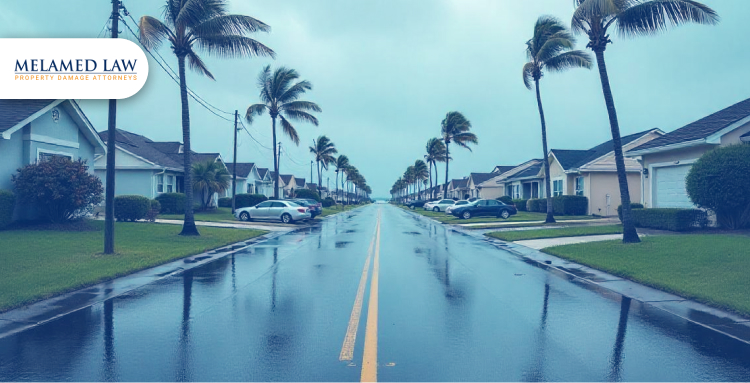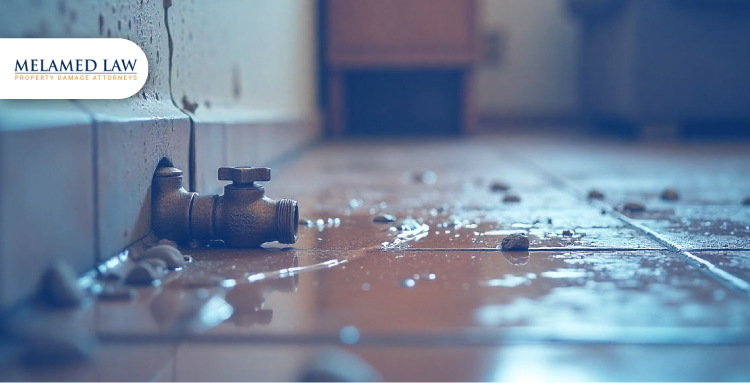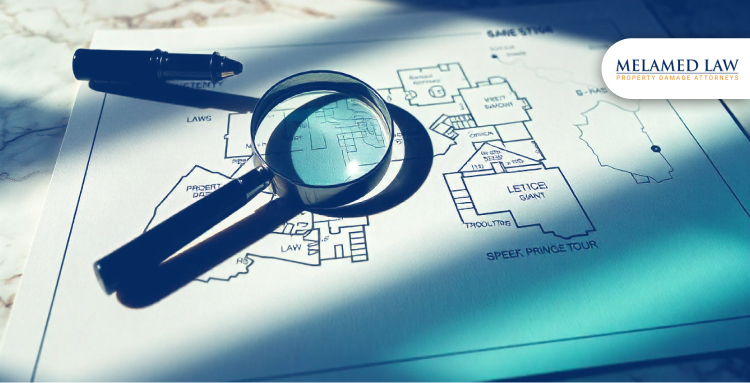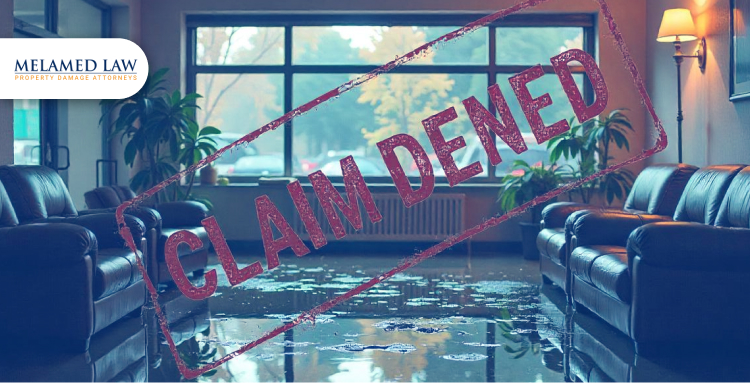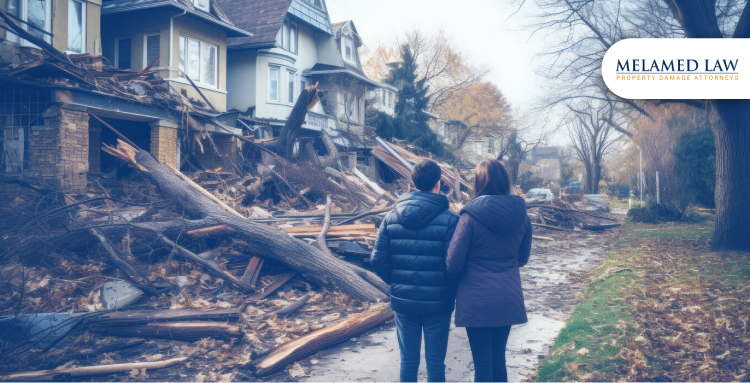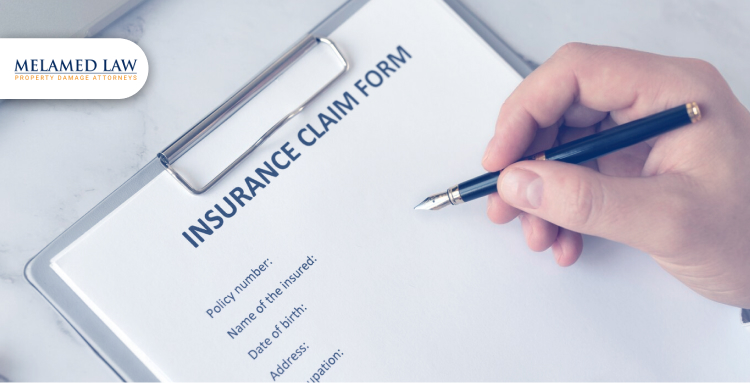
What if my property damage claim is denied in Florida
When the unexpected happens, we help individuals and businesses collect the money they deserve for their insurance claims.
Property Damage
December 30, 2024
What if my property damage claim is denied in Florida
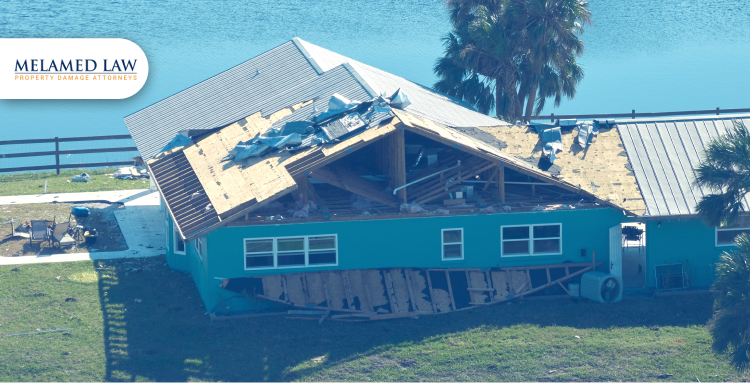
Claim denials are unfortunately more common than they should be, leaving many Florida residents in a tough spot when they need support the most. Sometimes, the insurance company cites issues like missing documentation or excluded damages, or they may claim the damage doesn’t meet policy criteria. Whatever the reason, it’s frustrating and often confusing for policyholders trying to protect their property and finances.
If you’re facing a denied property damage claim, it’s essential to know that this doesn’t have to be the end of the road. With the right steps—and a clear understanding of your rights—you can challenge a denial and possibly secure the support you need to rebuild.
1) Uncover the Reasons for Claim Denial
(I) Review Your Denial Letter Carefully
The first and most crucial step after receiving a denial is to carefully review the denial letter from your insurance company. This letter should clearly outline the reasons for the denial, offering insight into the insurer’s rationale. Often, these letters reference specific policy clauses or exclusions relevant to your case. While the language can be technical and overwhelming, understanding its content is essential for determining your next steps.
Take the time to pinpoint any specific issues noted, such as missing documentation, insufficient proof, or unmet policy conditions. If the language is unclear or difficult to interpret, don’t hesitate to contact your insurance company for clarification. Insurance policies can be complex, and seeking a clearer explanation of their decision is always a wise move.
(II) Common Reasons for Property Damage Claim Denial
While each situation is unique, property damage claims are typically denied for a handful of common reasons.
Policy Exclusions
Many insurance policies have specific exclusions for certain types of damage. For instance, a standard homeowners’ policy may exclude coverage for damages caused by flooding or particular types of mold. Reviewing your policy’s list of exclusions can clarify if the damage you’re claiming falls outside of the coverage provided. Understanding these exclusions early on can save time and set realistic expectations when filing a claim.
Insufficient Maintenance
Insurance providers generally expect homeowners to maintain their properties to a reasonable standard. Claims for damages that stem from a lack of upkeep—such as roof leaks due to worn-out materials or plumbing issues from neglected maintenance—are often denied under this clause. Insurers may view these damages as preventable, placing them outside the boundaries of coverage. Regular maintenance is key to avoiding this situation and ensuring your property remains protected.
Missing Documentation
Sometimes, a claim may be denied simply because there wasn’t enough supporting documentation. Missing items like photographs, repair estimates, or detailed descriptions can make it difficult for the insurer to fully assess and validate the claim. While this can be frustrating, it’s usually fixable. Gathering additional documentation and requesting a reconsideration may strengthen your case and move the claim forward.
Missed Deadlines
Insurance policies typically set specific deadlines for filing a claim after damage occurs. Missing these deadlines can be a reason for denial, as it may impact the insurer’s ability to investigate promptly or raise questions about the accuracy of the claim. However, if your claim was denied due to timing, it’s often worth asking for an exception—especially if extenuating circumstances caused the delay. Many insurers are open to considering these situations on a case-by-case basis.
2) Steps to Take When Your Claim is Denied

If your property damage claim was denied, gathering more evidence can often make a meaningful difference. The right documentation can strengthen your position and potentially lead to a favorable outcome if you seek a re-evaluation.
Gather Additional Evidence
Start by taking clear, comprehensive photographs of the damage as soon as possible after the incident. Capture multiple angles to show both the details and the broader context of the affected areas. If available, receipts and invoices for repairs or temporary fixes can help support your claim by demonstrating your incurred costs.
Additionally, any prior maintenance records or home inspection reports can showcase the property’s condition before the incident, countering claims that the damage resulted from neglect.
In some cases, hiring an independent assessor or contractor to evaluate the damage can be beneficial. Their unbiased assessment can provide expert insights into the extent and cause of the damage, helping to substantiate your claim. Having this third-party evidence on hand can significantly strengthen your case, showing that you’ve thoroughly documented the true extent of the damage.
Request a Re-Evaluation of Your Claim
After gathering all relevant evidence, you can request a re-evaluation of your claim from the insurance company. This is a common practice, and insurers are often willing to reconsider claims with new evidence. Reach out to your insurance provider to start the process, clearly stating that you have additional documentation or clarifications regarding any points that may have been misunderstood.
When making your request, be organized and concise. Present your new evidence along with a clear summary explaining how it addresses the original reasons for denial—such as documentation of the incident date, detailed repair receipts, or findings from an independent assessment.
This proactive approach demonstrates your commitment to resolving the claim and shows that you’ve taken responsible steps to address the insurer’s concerns. While a re-evaluation doesn’t guarantee approval, it often leads to a more equitable review and successfully overturns an initial denial.
3) Know Your Rights: Florida’s Alternative Dispute Resolution Options
If your property damage claim remains unresolved, Florida law provides alternative dispute resolution (ADR) options to help you reach an agreement without going to court. These options—mediation and appraisal—can be valuable tools for resolving differences with your insurance company, often leading to a fairer outcome with less time, cost, and stress than litigation.
Consider Mediation
Mediation is a process where you and your insurance company meet with a neutral third party—a trained mediator—who helps both sides work toward a mutually agreeable resolution. Unlike a judge, the mediator doesn’t make binding decisions but instead facilitates open dialogue, allowing each party to share their concerns and priorities.
In Florida, mediation is encouraged for property damage disputes, as it’s often faster and more cost-effective than going to court. This process also empowers you to actively participate in the negotiation, which can be beneficial if you believe your claim was unfairly denied or undervalued.
During mediation, you’ll have the opportunity to present your evidence, explain the impact of the denial, and clarify why the claim deserves reconsideration. While it doesn’t guarantee a resolution, mediation frequently results in satisfactory outcomes. And if no agreement is reached, you still have other avenues available.
Request an Appraisal
If your insurance company accepts your claim but you disagree on the compensation amount, an appraisal can be an effective way to resolve this dispute. Through the appraisal process, both you and the insurer select impartial appraisers who assess the damage and estimate repair costs. These appraisers work together to determine a fair value, helping to settle differences without further escalation.
In Florida, the appraisal process is especially valuable if you believe your claim has been undervalued. This process is binding, meaning both parties agree to accept the appraisers' final decision. Appraisal is particularly useful when the disagreement is over repair costs rather than the claim’s validity.
4) File a Complaint with the Florida Department of Financial Services (DFS)

If you’ve exhausted all other avenues for resolving your property damage claim and still feel unfairly treated, filing a complaint with the Florida Department of Financial Services (DFS) may be your next step.
How to File a Complaint with the DFS
Filing a complaint is designed to be straightforward and accessible. Start by visiting the DFS website, where you’ll find a section dedicated to complaints against insurers. You can submit your complaint online, which is usually the fastest option, or by mail or phone if you prefer. When completing the form, include details like your policy number, a clear description of your claim, and copies of any relevant documents, such as the denial letter or supporting evidence. A thorough, organized submission will help the DFS investigate effectively.
The Role of the DFS in Investigating Unfair Practices
Once your complaint is submitted, the DFS will assess it to determine if further investigation is warranted. They have the authority to review insurers’ practices to ensure compliance with Florida law. If they uncover evidence of unfair practices, such as unjustified denials, lack of communication, or unreasonable delays, they can take regulatory action against the insurer.
While the DFS cannot award financial compensation, their involvement often encourages insurers to reconsider a denied or undervalued claim. Filing a complaint signals to your insurance company that you are serious about protecting your rights, often leading to a renewed willingness to negotiate fairly.
5) When to Call in Melamed Law: Your Ally for Property Damage Disputes
One of the key advantages of securing legal representation is our ability to negotiate effectively with your insurance company on your behalf. We understand the tactics insurers often use to minimize payouts and leverage our extensive experience to advocate vigorously for the fair compensation you deserve.
With Melamed Law on your side, you won’t be just another claim number lost in the system. We create a tailored strategy specifically designed for your unique situation, significantly enhancing your chances of achieving a favorable resolution.
If you suspect your insurance company is engaging in bad faith practices, it’s crucial to consult with Melamed Law promptly. Signs of bad faith can include unnecessary delays in processing your claim, low-ball offers that don’t accurately reflect your damages, or unjustified denials.
Recent Cases

